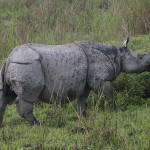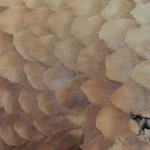
Police in Uttarakhand have arrested two suspects in possession of two leopard skins and 24 kg of hashish, thanks to receiving a tip off.
At least eight leopard skins have been seized in the region since the start of 2013. Two suspects who were previously arrested with three leopard skins admitted that “some people are actively involved in poisoning leopards”, according to the Daily Pioneer.
The Wildlife Protection Society of India (WPSI) reports that a total of 41 leopards have already died in India this year. Of those, 14 deaths were due directly to the illegal trade. In 2012, 331 leopard deaths were documented by WPSI, with 137 attributed to illegal trade in leopard skins and parts. WPSI notes that the figures “represent only a fraction” of the actual leopard trafficking issue in India.
A TRAFFIC study found that leopard parts are increasingly in demand for traditional Chinese medicine.
In traditional Chinese medicine, Leopard body parts are sometimes prescribed as substitutes for Tiger body parts and this persistent belief in traditions, whether medicinal or folkbased, that Leopard or other felid bones bring health or vigour to potential consumers, may further increase pressure on the Leopard.
Northern India was found to be a “hotspot” for illegal trade in leopard parts, with Delhi identified as “the most important hub”, followed by Uttar Pradesh, Uttarakhand, and Himachal Pradesh.

![India: 356 Leopards Dead in 365 Days [Graphic Video]](https://annamiticus.com/wp-content/uploads/2012/06/LeopardCloseup-150x150.jpg)


